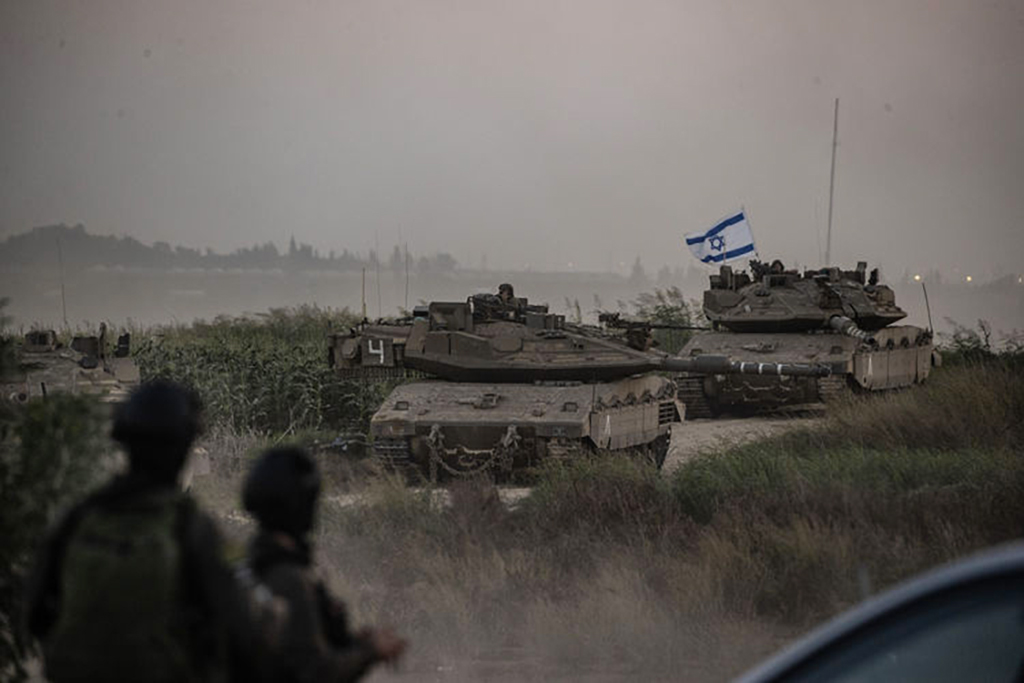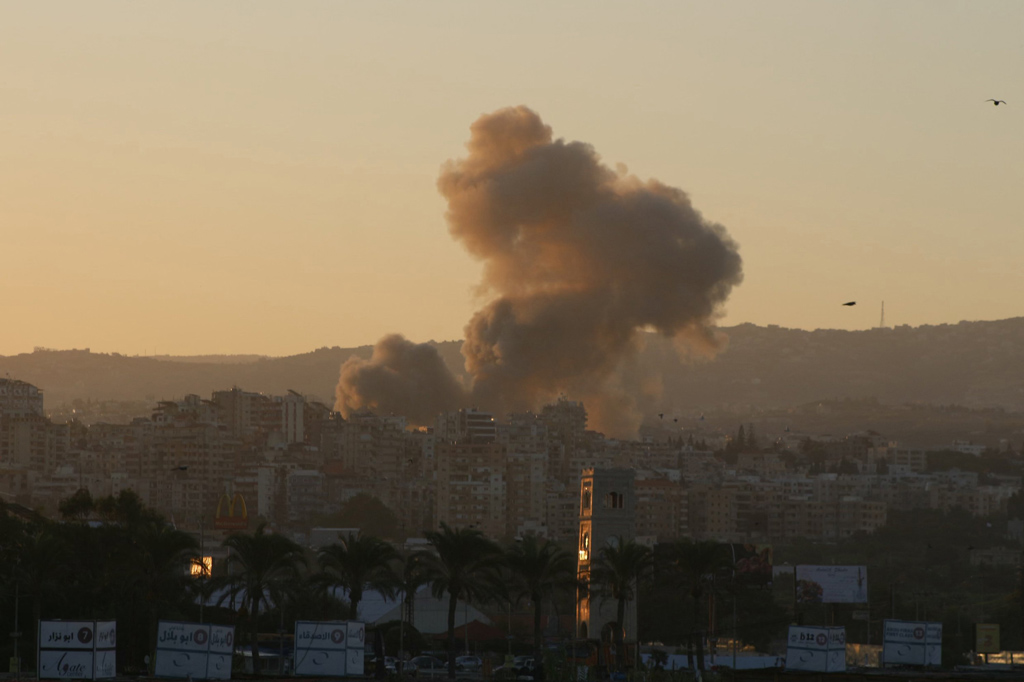
US-Iran tension may lead to unexpected confrontation
President Donald Trump's administration is increasing its pressure on Iran...
Share
President Donald Trump's administration is increasing its pressure on Iran. Washington has deployed an aircraft carrier, additional fighter aircraft and a bomber task force to the region. This new military deployment is part of its "maximum pressure" policy on Iran. However, the Trump administration does not want to engage in a direct armed confrontation with Iran. Such a fight could turn into a region-wide war and potentially lead to unpredictable outcomes for both sides because of Iran's proxies in the region. Trump instead wants a "better deal" with Tehran to replace the Joint Comprehensive Plan of Action (JCPOA), or the Iran Nuclear Deal, which was signed between the five permanent members of the U.N. Security Council plus Germany and Iran in 2015. Donald Trump calls the JCPOA the "worst deal ever" and as it stands, the Pentagon will not abandon its policy of maximum pressure on Iran without gaining some significant concessions from the Iranian side.
What differentiates Trump from his predecessor Barack Obama's negotiation team with Iran is that Trump is less patient than the Obama team. He considers a possible negotiation with Iran a zero-sum game. Washington is likely to offer very few concessions to Tehran if the nuclear deal is to be renegotiated. This gives no incentives for Iran to engage in diplomatic talks with Trump's national security team.
Trump is also eager to demonstrate the effectiveness of his negotiations in international crises. He insists on the same negotiation strategy in Washington's trade talks with Beijing, Caracas and Pyongyang. So far, the zero-sum type of negotiation strategy has led to significant losses for both sides, but Trump believes that the other side will concede more to avoid further losses due to the power asymmetry, which favors the U.S. If Iran engages in new negotiations, it would only be to deter or postpone a costly war with the U.S. and its regional allies. The objective of the maximum pressure policy is not to initiate a new military confrontation with Iran; instead, the Trump administration expects Iran to abandon its regional ambitions and expansionism and change the nature of its regime dramatically.
Iran's ballistic missile program and the nuclear program will be on the table, but most discussions will focus on Iran's regional expansion. Both Israel and Saudi Arabia expect the U.S. to limit Iran's regional ambitions with some form of armed intervention. They consider the Trump administration and Trump's national security team, led by National Security Adviser John Bolton, an excellent opportunity to constrain Iran in the region. Iran's regional rivals do not want to miss the chance to use the Trump administration's hawkish stance on the Iran issue. Those actors are ready to pay Washington the price of intervention, but the unpredictable nature of such aggression has made the U.S. wary of taking drastic steps, like the Iraq invasion.
U.S. Secretary of State Mike Pompeo laid out 12 demands for Iran in his speech at the Heritage Foundation, a Washington-based think tank, on May 2018. Those demands aim to prevent Iran's projects on ballistic missiles, uranium enrichment and complete abandonment of its regional ambitions. Those expectations are unlikely to be met by the Iranian regime, which stands strong despite the external pressure.
Maximum pressure will weaken the emerging pro-Western middle class and increase the hostility of Iran's younger generation, which is more interested in being integrated into the rest of the world. Economic conditions are deteriorating, leading to more profound disappointment among Iran's citizens. Economic sanctions increase the skepticism of Iranian society toward the regime, but the external nature of the pressure and the nature of the enemies composed of the U.S., Israel, Saudi Arabia, the United Arab Emirates (UAE) has consolidated Iranian citizens amid the increased sanctions.
So far, the economic crisis due to the sanctions did not lead to social unrest or widespread protests all over Iran. Most Iranians believe that the Trump administration's pressure is unfair and that the sanctions are serving the interests of Israel and Saudi Arabia rather than the interests of the people who are in favor of a political change in Iran and the signatories of the JCPOA. The moral ground of the sanctions is crucial if the U.S. expects some form of internal change in Iran. This maximum pressure policy will not open more space for moderates in Iran that want to develop more constructive relations with the West. The marginal impact of the increasing pressure on Iran is diminishing, and the pressure is not aiming for a realistic outcome. The collective punishment of Iranian people is backfiring, and such punishment will unlikely be able to raise the expected changes for Washington and its regional allies.
The Islamic Republic of Iran demonstrated persistence during the eight years of war with Iraq between 1980 and 1988, and before the nuclear deal. Iran is not likely to change its position despite the sanctions and the fact that the Trump administration will continue to insist on the maximalist stance in negotiations. It is tough to maintain the current stalemate under the conditions of an increased military buildup in the region. Increased tension may cause further escalation, even accidental military pressure, unless there is backdoor diplomacy between Washington and Tehran.
[Daily Sabah, 15 May 2019]
Tags »
Related Articles








